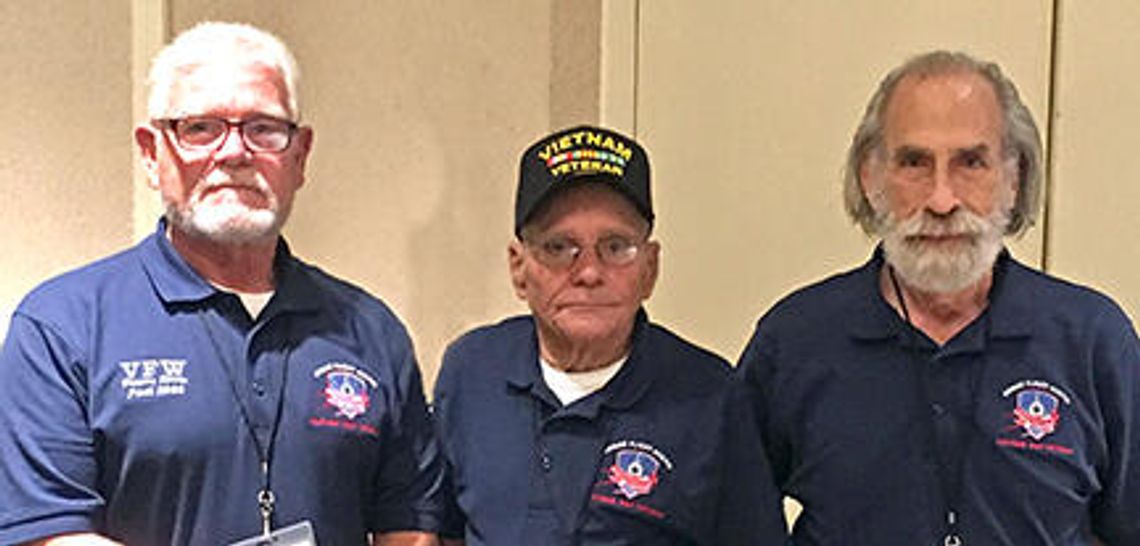Prior to taking off to Washington D.C. from Austin Bergstrom International Airport in September, Vietnam veteran and Dripping Springs resident Sheldon Miller made sure his son offered him three simple words when he got back.
Those words were something Miller and countless others never quite got a chance to hear from their peers when they returned from combat.
“I’ve never seen so many people in droves that didn’t hate us. I’ve never had that before. I couldn’t believe the enthusiasm. No one was on their knees in the terminals. They all stood up and applauded.”
–Sheldon Miller, Vietnam veteran and
Dripping Springs resident
“I told my son, ‘Tell me, ‘Welcome home, Dad.’”
And so Miller, at age 71, couldn’t hold back his emotions when his son kept whispering those words after his experience with Honor Flight Austin, a nonprofit organization dedicated to honoring surviving war veterans.
For Miller, the trip provided a sense of catharsis.
“My country finally gave me my parade,” Miller said.
Origins of the Honor Flight program began in the early 2000s soon after the National World War II museum was constructed, said Dwain James, chairman of the Honor Flight Austin program. The mission initially was to honor surviving WWII veterans by taking them to visit the national memorial in Washington D.C.
Eventually, branches began to develop in major cities such as Austin and Dallas over the years. As time has gone on, Honor Flight programs have started to extend the flight to Korean and Vietnam war veterans.
The trip, which is free to veterans, consists of visiting many of the war memorials in the nation’s capital. Veterans who participate are also given a ceremonious parade and full military honors when they depart and arrive at each airport, as well as when they travel to and from their hotels and to the memorials.
James said the idea is to ensure veterans are honored and respected during their experience.
Miller, who was one of a handful of Hays County veterans who went on an honor flight this August, lauded the experience and how planned it was. But Miller was taken aback when he was wheeled through ABIA for a ceremonial parade to their gate.
It was an experience that drove Miller to tears. For Miller and many Vietnam veterans, their return from combat was met with a public that resented American involvement in the war. Miller, who suffers from post traumatic stress disorder (PTSD), was disillusoioned by the anger toward soldiers.
“I’ve never seen so many people in droves that didn’t hate us. I’ve never had that before,” Miller said. “I couldn’t believe the enthusiasm. No one was on their knees in the terminals. They all stood up and applauded.”
Miller also enjoyed the ability to work with those in the military once on the ground in Washington D.C. Miller, a Marine Corps veteran, was paired with a Marine who assisted him in various ways, including when he visited the Vietnam memorial.
For Miller, being wheeled into the memorial was not an option. Even when he asked the Marine if he was tired and if he could push himself, the soldier continued to assist him.
“He had the Marine demeanor and he had the discipline and respect,” Miller said. “He could not have done any better for me.”
Fresh off the trip, Miller advocates for area surviving veterans to participate. All that is required is to fill out paperwork on the website.
“It was a very spiritual journey for me and they made it so simple,” Miller said. “They wanted to help vets.”










